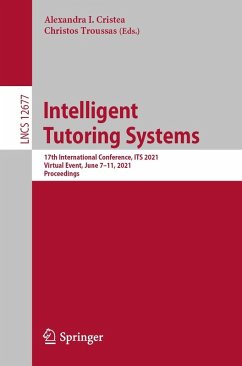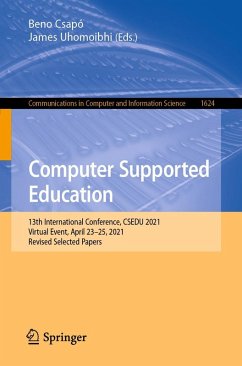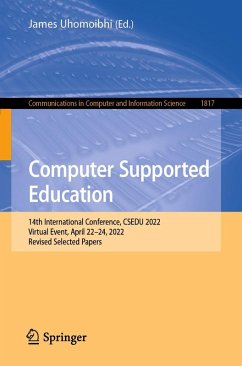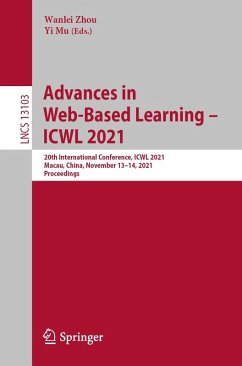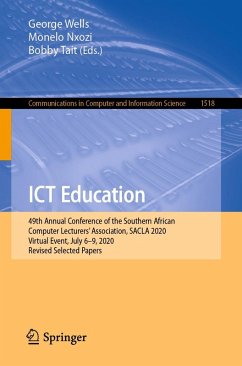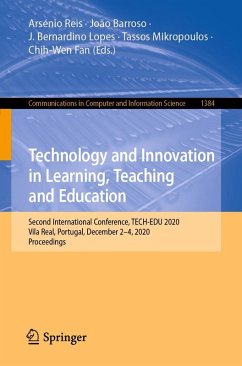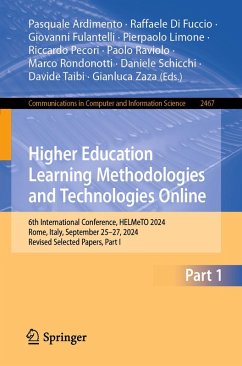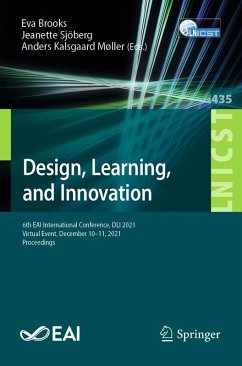
Computer Supported Education (eBook, PDF)
12th International Conference, CSEDU 2020, Virtual Event, May 2-4, 2020, Revised Selected Papers
Redaktion: Lane, H. Chad; Uhomoibhi, James; Zvacek, Susan
Versandkostenfrei!
Sofort per Download lieferbar
72,95 €
inkl. MwSt.
Weitere Ausgaben:

PAYBACK Punkte
36 °P sammeln!
This book constitutes selected, revised and extended papers from the 12th International Conference on Computer Supported Education, CSEDU 2020, held as a virtual event in May 2020.
The 25 revised full papers were carefully reviewed and selected from 190 submissions. The presented papers contribute to the understanding of relevant trends of current research on Computer Supported Education, including learning analytics, intelligent tutoring systems, virtual and augmented reality, MOOCs, and automated assessment systems.
The 25 revised full papers were carefully reviewed and selected from 190 submissions. The presented papers contribute to the understanding of relevant trends of current research on Computer Supported Education, including learning analytics, intelligent tutoring systems, virtual and augmented reality, MOOCs, and automated assessment systems.
Dieser Download kann aus rechtlichen Gründen nur mit Rechnungsadresse in A, B, BG, CY, CZ, D, DK, EW, E, FIN, F, GR, HR, H, IRL, I, LT, L, LR, M, NL, PL, P, R, S, SLO, SK ausgeliefert werden.



